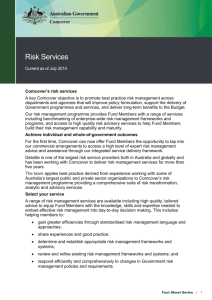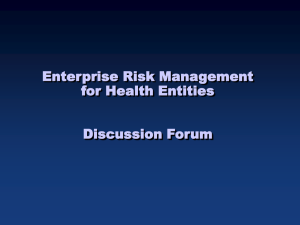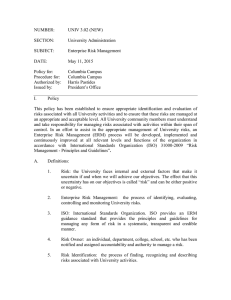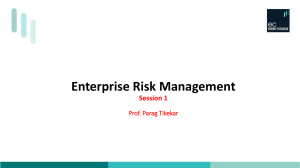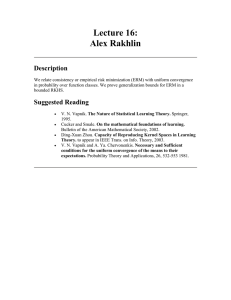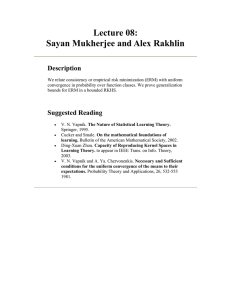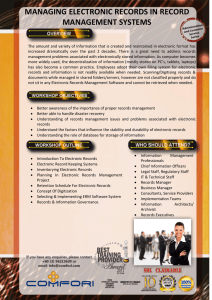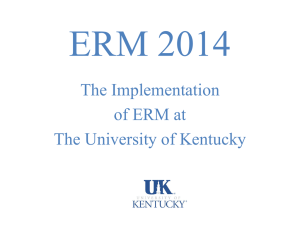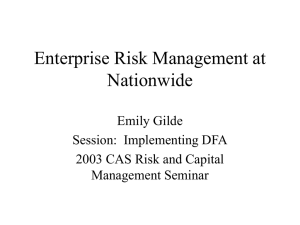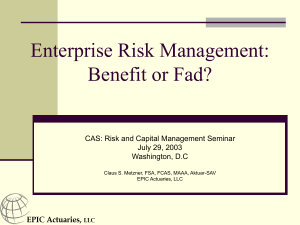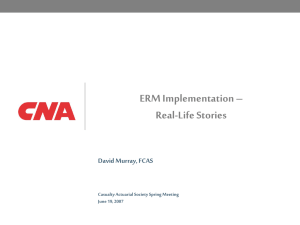Document 15689652
advertisement
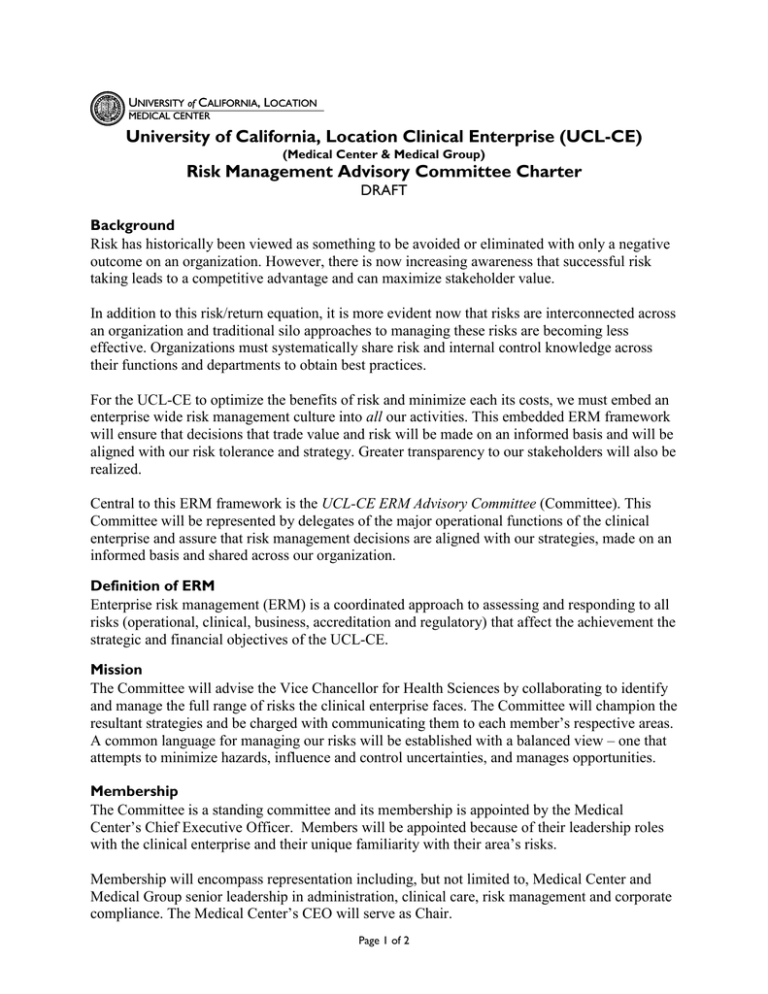
UNIVERSITY of CALIFORNIA, LOCATION MEDICAL CENTER University of California, Location Clinical Enterprise (UCL-CE) (Medical Center & Medical Group) Risk Management Advisory Committee Charter DRAFT Background Risk has historically been viewed as something to be avoided or eliminated with only a negative outcome on an organization. However, there is now increasing awareness that successful risk taking leads to a competitive advantage and can maximize stakeholder value. In addition to this risk/return equation, it is more evident now that risks are interconnected across an organization and traditional silo approaches to managing these risks are becoming less effective. Organizations must systematically share risk and internal control knowledge across their functions and departments to obtain best practices. For the UCL-CE to optimize the benefits of risk and minimize each its costs, we must embed an enterprise wide risk management culture into all our activities. This embedded ERM framework will ensure that decisions that trade value and risk will be made on an informed basis and will be aligned with our risk tolerance and strategy. Greater transparency to our stakeholders will also be realized. Central to this ERM framework is the UCL-CE ERM Advisory Committee (Committee). This Committee will be represented by delegates of the major operational functions of the clinical enterprise and assure that risk management decisions are aligned with our strategies, made on an informed basis and shared across our organization. Definition of ERM Enterprise risk management (ERM) is a coordinated approach to assessing and responding to all risks (operational, clinical, business, accreditation and regulatory) that affect the achievement the strategic and financial objectives of the UCL-CE. Mission The Committee will advise the Vice Chancellor for Health Sciences by collaborating to identify and manage the full range of risks the clinical enterprise faces. The Committee will champion the resultant strategies and be charged with communicating them to each member’s respective areas. A common language for managing our risks will be established with a balanced view – one that attempts to minimize hazards, influence and control uncertainties, and manages opportunities. Membership The Committee is a standing committee and its membership is appointed by the Medical Center’s Chief Executive Officer. Members will be appointed because of their leadership roles with the clinical enterprise and their unique familiarity with their area’s risks. Membership will encompass representation including, but not limited to, Medical Center and Medical Group senior leadership in administration, clinical care, risk management and corporate compliance. The Medical Center’s CEO will serve as Chair. Page 1 of 2 University of California, Location Clinical Enterprise—Enterprise Risk Management Advisory Committee Charter Membership will consist of: UCL-MC CEO UCL-MC COO UCL-MC CFO UCL-MC Physician-in-Chief UCL-MC CMO UCL-CNO UCL-MC Corporate Compliance Officer UCL-MC Director of Human Resources UCL-MC Chief Risk & Safety Officer Medical Group COO The Committee has no executive powers or supervisory functions. Rather, it will function in a review and recommendation role to the Vice Chancellor for Health Sciences on behalf of the entire clinical enterprise. Duties and Responsibilities The Committee shall discuss and assist in the following areas: Design a comprehensive and common-sense approach to manage risks across the entire organization Utilize risk for the clinical enterprise’s competitive advantage Disseminate to the clinical enterprise the upside of risk and the many opportunities it can present, rather than the traditional perspective of “risk as hazard” Increase the clinical enterprise’s risk intelligence – meaning how we gather information about risks, analyze, apply and learn from the results Establish campus-wide measurement methodologies for quantifying, comparing, benchmarking and prioritizing our risks Continuously assess our risk management strategies to assure they remain current with regulatory, operational and legal changes as well as our business objectives Work in conjunction with the Medical Center’s Patient Safety Committee to recommend and develop patient safety policies consistent with our ERM culture Work in conjunction with the Medical Center’s Environment of Care Committee to recommend and develop work place safety policies consistent with our ERM culture Retrospectively review incurred financial or operational losses and prepare recommendations or corrective action plans for their future prevention Advise the Vice Chancellor for Health Sciences on all matters related to ERM Meetings The Committee will meet at least four times annually and more frequently if deemed necessary. Non-Committee members may be invited to attend meetings. Page 2 of 2
